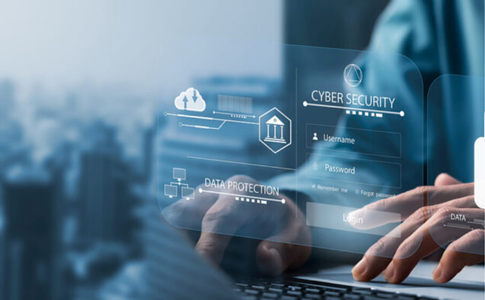What Is the Future of AI in Cybersecurity?
Revolutionizing various fields, artificial intelligence (AI) has taken the world by storm showing just a glimmer of its full potential. It is evident to the industry that artificial intelligence and cybersecurity opportunities and challenges are two roads that intersect. Cybersecurity itself is vital in the age of the internet. AI has evolved to become a critical tool to protect both infrastructure and data from cyber-attacks. Let us discuss and explore examples of AI in cybersecurity and how it can create a more secure world.
Is AI a Benefit or Threat to Cybersecurity?
Practically speaking, AI can be both a benefit and a threat to cybersecurity. While this is not necessarily a straight answer, it is not an easy question. AI has the ability to analyze an incredible amount of data and even find patterns. This makes AI a valuable tool for detecting an attack, finding hackers, and taking action immediately. Consequently, AI could launch an attack as well. This makes it a potential weapon for hacking data or even infrastructure systems. In many ways we are in uncharted waters with regard to AI in cybersecurity, making this stage of development a crucial tipping point.
What Is an AI Cyber Attack?
An AI cyber attack involves the use of artificial intelligence by an attacker to not only identify a vulnerable system but take advantage of that vulnerability. AI cybersecurity threats are a real concern. During an attack, the AI detects, analyzes, and takes advantage of the system’s security flaws. Unfortunately, it is very difficult to identify and defend against these types of attacks.
How Is AI Used in Cybersecurity?
Because AI cybersecurity risks are very real, it is becoming more prevalent to use AI as a tool to detect and prevent attacks proactively. The idea of fighting against artificial intelligence and data breach scenarios requires innovative solutions by cybersecurity professionals. A few examples of how AI is used in cyber security include:
-
Identification and analysis of a potential threat where patterns can be detected within data and identifying possible cyber threat scenarios.
-
Finding malware and removing it before it can penetrate a local device or a larger network.
-
Respond to an attack immediately. The history of AI in cybersecurity in primitive forms has been around longer than most people may realize. It has only been in recent years that artificial intelligence has been able to provide a real-time response to a cyber attack.
-
Prediction of future threats is entirely possible through the use of artificial intelligence. Using predictive analytics, AI looks at patterns and threats before they become a serious concern. This has been a game-changer in the field of cybersecurity.
How Is AI Used to Prevent Cyber Attacks?
Because AI can be used as a weapon in a cyber attack, it must also be a critical tool for attack prevention. AI systems are analyzing data non-stop. This continuous analysis is so the AI can find anomalies. Much like having humans try to look for flaws in a system, the AI can detect these weaknesses with lightning precision and without the need to stop or rest.
While the human element cannot be overlooked, AI is a valuable tool for cybersecurity professionals to find these vulnerabilities. Artificial intelligence can block attackers as something of a gatekeeper. It can remove malware and viruses before they can damage the system.
What Are the Impacts of AI in Cybersecurity?
While artificial intelligence has been in an evolutionary state of development for decades, in a relatively short period of time it has had a huge impact on cybersecurity. Because AI can analyze huge amounts of data with incredible accuracy it is a logical tool for detecting and preventing cyber-attacks. As discussed, early detection of weaknesses in security infrastructure with immediate response is perhaps the greatest impact AI has today on cybersecurity.
The potential is enormous in the prevention of cyber attacks. The industry should always be aware of how it can be offensive as well. For this reason, developers of AI must exercise caution as a cybersecurity measure. AI cannot be left unchecked, and it cannot be given complete freedom in any system.
Artificial intelligence should not be feared as a weapon. There is far more good that can come from the responsible use of AI in modern cybersecurity. Certainly, AI has been a game-changer in how we look at how we secure our technology systems. Even though there are possible offensive concerns, the use of AI as a defensive tool can better protect sensitive data and guard against attacks. As technology evolves, examples of AI being hacked will become less of a concern. Sophisticated safeguards and development practices become far more important.


